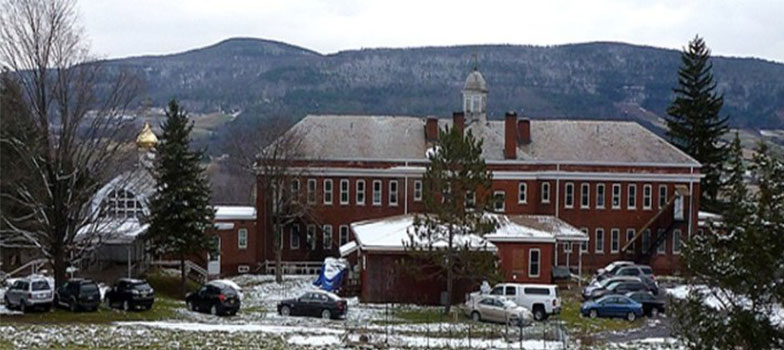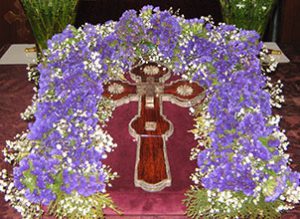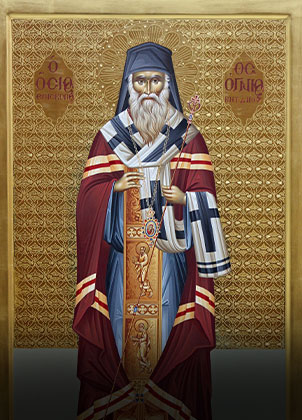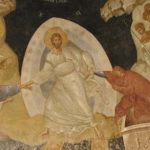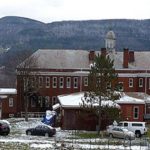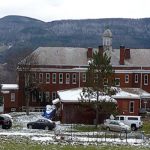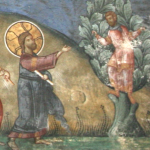Слово на Открытие VI Всезарубежного Собора Архиеп. Андроника
Январь 2017

Дорогие владыки, отцы и братия, участники VI Всезарубежного Собора!
Открывая заседания VI Всезарубежного Собора, я, как его председатель, должен сказать, что поводом для нашего собрания послужил не только светлый праздник Рождества Господа нашего Иисуса Христа. Нас заставил собраться глубокий кризис, постигший, к несчастью, нашу Русскую Зарубежную Церковь.
С великой скорбью пережили мы унию 2007 года, которую заключил с еретической Московской Патриархией Митрополит Лавр и последовавшие за ним отступники. Нашим главным желанием было положить все силы на воссоздание подлинной церковной жизни в духе соборности и истины.
Прервав общение с Синодом Митрополита Лавра после подписания им злосчастной унии, многие из нас, здесь присутствующих, доверились епископу Агафангелу, единственному из архиереев, не принявшему этой унии.
В 2008 году в Нью Йорке под его председательством состоялся V Всезарубежный Собор, сформировавший новое церковное управление. Возглавил его епископ Агафангел, возведенный в сан Митрополита. Первые годы его руководства можно считать плодотворными. Церковь росла, к нашему Синоду присоединялись священнослужители и приходы. Установились живые, доверительные отношения с братскими старостильными Церквами.
Чтобы показать направление церковной жизни в первые годы работы нашего Синода, позвольте прочитать отрывок из послания Временного Высшего Церковного Управления под председательством митр. Агафангела от 4-го сентября 2008 года: “Главной задачей сейчас мы видим необходимость прочного устроения соборного строя, чтобы Церковью управлял и вершил в ней все дела не узкий круг людей, – но вся полнота Церкви, включая священство и мирян, принимали самое активное участие в решении главных общецерковных вопросов, в духе постановлений Поместного Собора Российской Церкви 1918 года. Только в таком, соборном, устроении нашей внутренней жизни, мы можем противостоять всем одолевающим нас искушениям и соблазнам”.
К сожалению, митр. Агафангел стал постепенно изменять этот курс, окружив себя “узким кругом людей, который стал управлять и вершить все дела” в нашей Церкви, притом далеко не всегда успешно.
Таким образом, в нашей Церкви сложилась ситуация, не предусмотренная Положением о РПЦЗ, когда церковная власть узурпирована узкой группой иерархов, и отсутствует возможность апелляции к непредвзятому суду какой-либо законной церковной инстанции.
Стали раздаваться протесты против тех или иных решений митрополита, которые неизменно поддерживал его послушный Синод. Но вместо того, чтобы внять голосу собственной паствы, митр. Агафангел начал репрессии в отношении мирян и священнослужителей, высказывавших недовольство. Позже дошла очередь и до архиереев, пытавшихся защитить своих клириков и паству от незаконных решений Первоиерарха. В результате наша Церковь пришла в состояние тяжелейшего кризиса, который произвел новое разделение. Наша совесть отказывается принять многочисленные прещения, некоторые из которых вообще не известны каноническому праву и не встречаются в истории Православной Церкви. Большинство этих прещений были вынесены в обход процедуры законного церковного судопроизводства.
Многие попытки призвать митр. Агафангела (в том числе и через братских греческих иерархов) к восстановлению подлинной соборности в нашей Церкви, не только не принесли результата, но напротив, вызывают все большее озлобление с его стороны.
Чтобы оградить свои епархии и паству от посягательства митр. Агафангела, мы с владыкой Софронием вынуждены были заявить о непринятии от митр. Агафангела каких-либо указов до созыва Всезарубежного Собора с участием клириков и мирян, как выражения всей полноты Церкви.
Но и эта форма открытого протеста, широко известная в истории Церкви, не только не вразумила митр. Агафангела, а была ложно истолкована им как раскол. Это обвинение он активно навязывает как собственной пастве (особенно на веб-сайте “Internet-sobor”), так и иерархам братских старостильных Церквей Греции, Болгарии и Румынии.
Спустя некоторое время, под моим председательством была создана Предсоборная комиссия, в которую вошли представители нескольких епархий РПЦЗ. Предсоборная комиссия подготовила нынешний Собор, чтобы, с Божией помощью, преодолеть церковный кризис.
Другая цель нашего Собора – приложить все усилия на собирание разрозненных церковных групп, не принявших унии. Не все оставались с Синодом Митрополита Лавра до самого дня унии, многие прервали общение с ним задолго до подписания “Акта о каноническом общении”, понимая, что курс на “воссоединение” с МП уже предрешен. Но мы до последнего дня верили, что еще возможна перемена этого курса. К несчастью, эти надежды не оправдались. В результате мы оказались в различных церковных группировках. Преодолеть это разделение – это наша первостепенная задача. Да поможет нам Господь!
Аминь.
Archbishop Andronik: VI All-Diaspora Council Opening Remarks
Dear archpastors, pastors, and brothers, delegates of the VI All-Diaspora Council!
In opening this session of the VI All-Diaspora Council, I must say, as the chairman, that the radiant feast day of the Nativity of our Lord, our Jesus Christ, is not the only reason we are gathered today. The profound crisis that unfortunately grips our Russian Church Abroad has forced us to come together. With great sorrow, we experienced the union in 2007 signed by Metropolitan Laurus, and the apostates who followed him, with the heretical Moscow Patriarchia. Our greatest wish after that was to devote all our efforts at restoring a full life in the Church in the spirit of conciliarity and truth. After breaking with the Synod of Metropolitan Laurus after the signing of the ill-fated union, many of us, some of whom are here today, placed our trust in Bishop Agafangel, the only bishop who did not accept the union.
In New York State in 2008, the V All-Diaspora Council took place under his chairmanship and established a new church administration. After being made a metropolitan, Bishop Agafangel was chosen to lead this new administration. The first years of his leadership can be considered successful. The Church grew and clergy and parishes joined our Synod. Vital and trusting relations were established with our brothers in the Old Calendar Churches.
To show which direction our church life was to take in the early years of the work of our Synod, allow me to read an excerpt from an epistle of the Temporary Higher Church Authority under the chairmanship of Met. Agafangel issued in September 4, 2008, “We understand that our primary task is the need to establish a solid, conciliar footing, so that the matters in the Church are not decided by a small circle of people, but by the entirety of the Church, including the clergy and the laypeople who will take a very active role in the deciding of important matters affecting the entire Church, in the spirit of the resolutions of the Local Council of the Russian Church in 1918. If we establish our internal church life on this conciliar footing, we can resist all the trials and temptations facing us.” Sadly, Met. Agafangel began to slowly change direction and surrounded himself with a “tight circle of people, which began to rule and decide all matters” in our Church, and it must be noted, not very successfully.
As a result, a situation arose in our Church that was not provided for in the Status of the ROCA, where the authority in the Church was usurped by a small group of bishops, and the ability to appeal to an impartial judge at some level of the legal church body was no longer possible. Protests were heard at one or another decision of the metropolitan, which were always supported by his obedient Synod, but instead of heeding the voice of his own flock, Met. Agafangel began persecuting the clergy and laypeople that expressed their dissatisfaction.
Then it was the turn of the bishops, who tried to defend their clergy or flock from the unlawful decisions of the First Hierarch. As a result, our Church descended into a condition of deep crisis, which caused new divisions. Our conscience refuses to accept the numerous punishments, many of which do not fall under any canons and have never been issued in the history of the Orthodox Church. Most of these punishments were issued while ignoring the procedures of a legal church judicial process.
The many attempts (even from our brothers, the Greek bishops) to ask Met. Agafangel to restore full conciliarity in our Church not only did not bring any results but instead, caused him to become even more spiteful. To guard our dioceses and flocks from Met. Agafangel’s attacks, Abp. Sophroniy and I were forced to announce our refusal to recognize any decrees of Met. Agafangel until an All-Diaspora Council, to include clergy and laypeople, could be convened to reflect the entirety of the Church. Even this form of open protest, well known in the history of the Church, not only did not bring Met. Agafangel to his senses, but was falsely labeled as schism by him. He insists on this accusation to his own flock (especially through the use of the Internet-Sobor website), but even to his brothers in Christ, the bishops of the Old Calendar Churches of Greece, Bulgaria, and Romania.
Sometime later, under my direction, a Pre-Council Committee was formed which included individuals from several dioceses of the ROCA. The Pre-Council Committee made preparations for this Council so that with God’s help we can overcome this crisis in the Church. The second goal of our Council is to make all efforts to gather the divided groups within the Church that did not accept the union.
Not everyone remained with Met. Laurus’ Synod until the day of the union, many severed relations with him long before the signing of the “Act of Eucharistic Communion,” having understood that the decision to “unite” with the MP had already been made. We believed until the last day that somehow this course of action could be changed. Sadly, these hopes were not realized, and we found ourselves as a result in different church groups. To overcome these divisions is our primary goal.
May God help us!
Amen.

